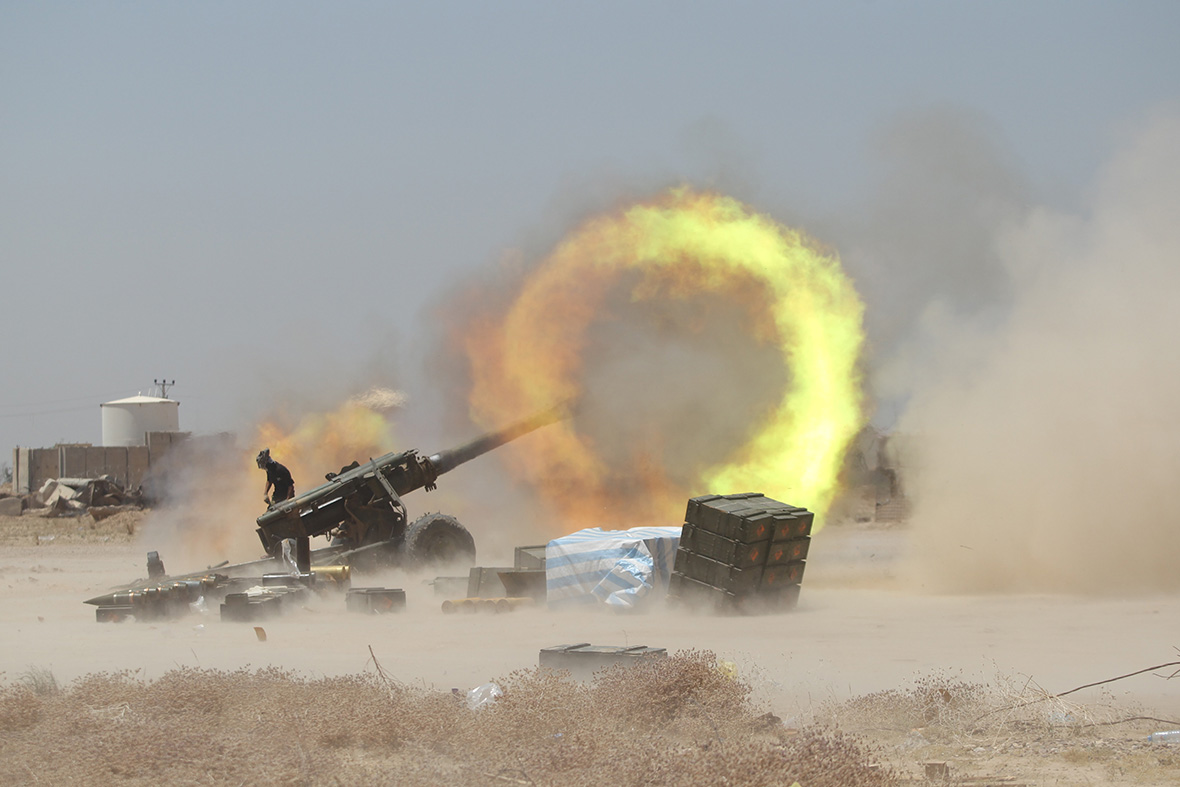Battle for Fallujah: War photos of Iraqi forces surrounding Isis militants holed up in besieged city
Iraqi forces have been closing in on Fallujah in order to reclaim the city from Islamic State (Isis) militants in what has been described as one of the biggest battles ever fought between IS militants. Fallujah was the first city in Iraq to fall under IS control in January 2014 and has been under siege for more than six months.
On Tuesday (31 May 2016), Iraqi Shi'ite fighters repelled a four-hour attack in the city's south, a day after moving into the southern edges of the militant city, with the help of US-led coalition air strikes. Two officers with the Iraqi special forces told the Associated Press that the attack began in Fallujah's Nuaimiya area at dawn, where Iraqi troops captured almost 85% of the ground the day before.
The officers, speaking on the condition of anonymity, continued their account, saying that the militants used tunnels, deployed snipers and sent six cars filled with explosives towards Iraqi troops, which were destroyed before reaching the targets.




According to the UN refugee agency, the IS militants occupying Fallujah are holding several hundred families, using them as 'human shields' and depriving them of food, water and medicine. Some 3,700 people have managed to flee the besieged city during the week-long offensive, which began on 23 May. Yet it has been reported that some 50,000 people remain trapped in the city in what has been described as a "human catastrophe".
"UNHCR has received reports of casualties among civilians in the city centre of Fallujah due to heavy shelling, including seven members of one family on the 28th of May [Saturday]," UNHCR spokesman William Spindler said at a news briefing.




"Most people able to get out come from the outskirts of Fallujah. For some time militants have been controlling movements, we know civilians have been prevented from fleeing. There are also reports from people who left in recent days that they are being required to move with Isil [Isis] within Fallujah," UNHCR field staff, spokeswoman Ariane Rummery told Reuters.



If recaptured, Fallujah would be the third major city in Iraq to be regained by the government after Tikrit and Ramadi, the capital of Iraq's vast western Anbar province. Reclaiming it would give Masum's government control of the major population centres of the Euphrates River valley west of the capital for the first time in more than two years.








© Copyright IBTimes 2024. All rights reserved.






